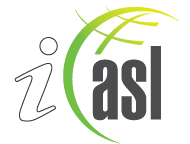

|
|
IASL Research Abstracts: 184
Findings: Forty-percent of UK university libraries have some form of link with local secondary schools where training in information skills is offered to pupils (60%); teachers (28%); and school librarians (16%). Five types of training for school pupils were identified: access to, and informal support for, e-resources; developmental information skills programmes; Information literacy skills projects; day- and summer-training programmes; and online information literacy skills packages.
Abstract: An initial investigation into the collaborations taking place between UK secondary schools and universities in the provision of information literacy skilling relating to the use of e-resources was conducted in 2002. It was funded by the Joint Information Systems Committee which is responsible for information and communications technology in higher and further education. This paper reports on a further phase of this work, which commenced in late 2004 and ended in Summer 2005. The second phase – a detailed investigation of practice – comprised a combination of quantitative and qualitative research. As a precursor to a qualitative study, a survey of all university libraries in the UK was undertaken using an e-mail questionnaire to identify the incidence of current collaboration, and university libraries for the case studies. Face-to-face and telephone interviews were conducted with the university librarians, and an analysis was undertaken of teaching and learning materials. With respect to general incidence of provision, the survey revealed that over 40% of the university libraries which responded to the questionnaire have some form of link with local secondary schools. Within these, training in information skills offered to: pupils (60%); teachers (28%); and school librarians (16%). Five types of training for school pupils were identified: Access to, and informal support for, e-resources; Developmental information skills programmes; Information literacy skills projects; Day- and summer-training programmes; and Online information literacy skills packages. The research revealed at least seven distinct positive aspects of cross-sectoral collaboration for school pupils, and delineated the major constraints to the organisation and administration of programmes. A fundamental lack of understanding of the respective roles of secondary and higher education librarians was evident, and a range of issues to be addressed by librarians in both educational sectors was identified. A set of strategies for enhancing collaboration and suggestions for further research are offered.
Lonsdale, R. & Armstrong, C. (2006). A study of information literacy initiatives between secondary schools and universities in the United Kingdom. In The Multiple Faces of Literacy: Reading, Knowing, Doing -- IASL Reports, 2006: Selected Papers from the 35th annual conference of the International Association of School Librarianship, and the Tenth International Forum on Research in School Librarianship, Lisbon, Portugal, 3-7 July 2006. Ana Bela Martins, Antonio Pina Falcao, Elsa Conde, Isabel Andrade, Manuele Barreto Nunes, Maria Jose Vitorino, editors. International Association of School Librarianship, Erie (PA), USA, 2006. ISBN: 978-1-890861-32-2.
Subject Categories: 3, 10
